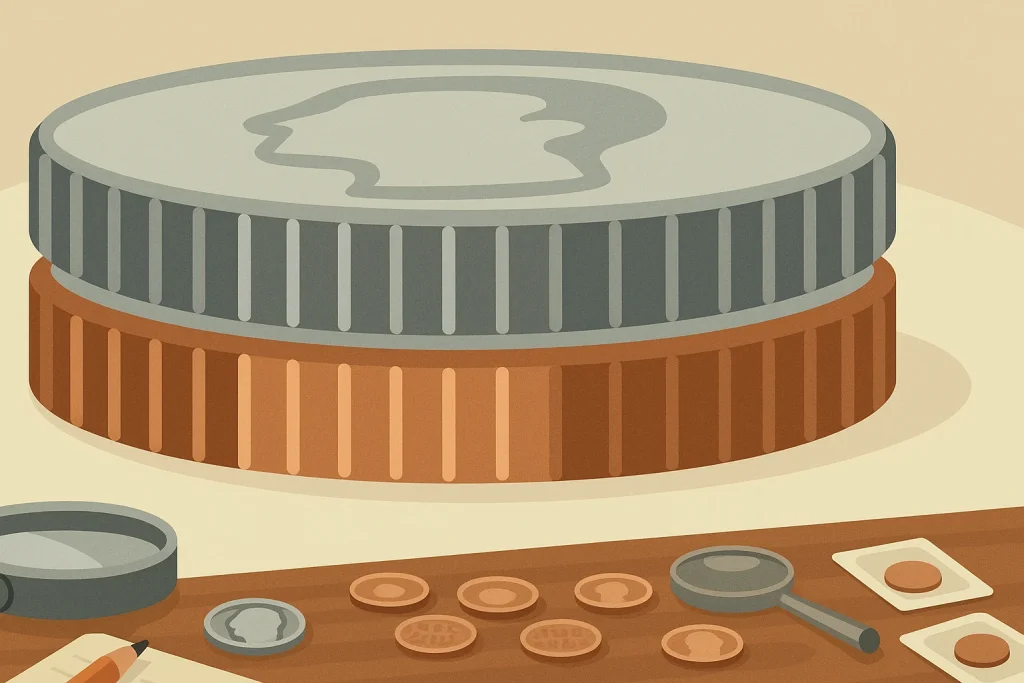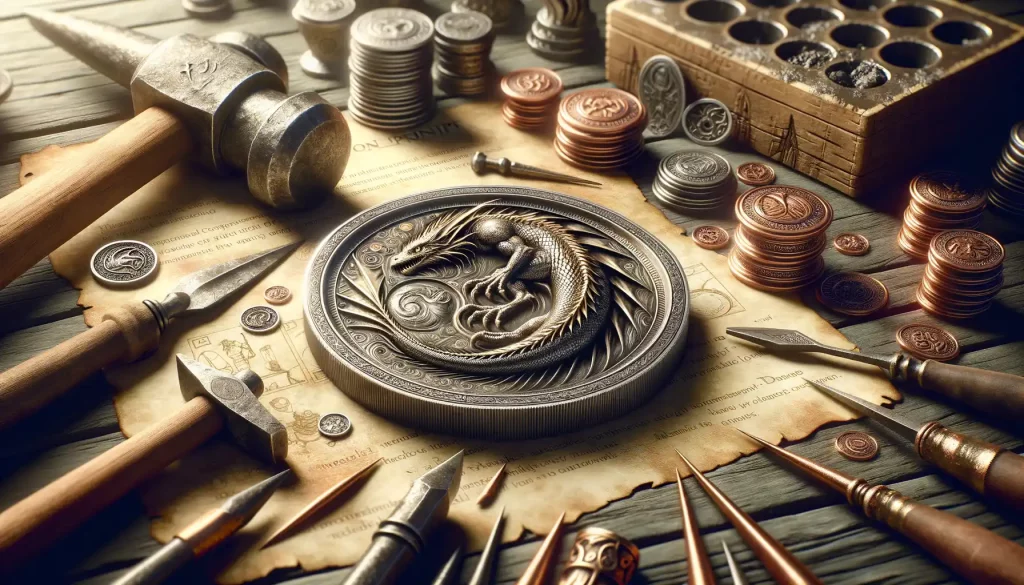Understanding the Importance of Fantasy Coins in RPGs
The Heartbeat of Your RPG World
Imagine stepping into a bustling medieval market. Traders shout over each other, their carts piled high with exotic spices, glittering gemstones, and mysterious artifacts. What truly holds this scene together? It’s not just the chatter or the wares—it’s the clink of coins exchanging hands. In role-playing games (RPGs), fantasy coins are the unsung heroes that bring these moments to life. Without them, your carefully crafted world might feel more like a stage play missing its props.
Fantasy coins are more than shiny objects to line a character’s pouch. They embody value, power, and opportunity. Think about it: would a rogue risk stealing a jewel-encrusted goblet for free? No, it’s all about stacking those coins! These tokens are symbols of effort, strategy, and, let’s face it, a little bit of greed.
- A hefty pouch of gold? That’s player pride.
- An empty one? Instant motivation.
- A rare coin? A relic that whispers secrets of forgotten kingdoms.
Coins don’t just drive economies—they anchor your players in the heartbeat of your storytelling.
How Fantasy Coins Enhance Immersion and Storytelling
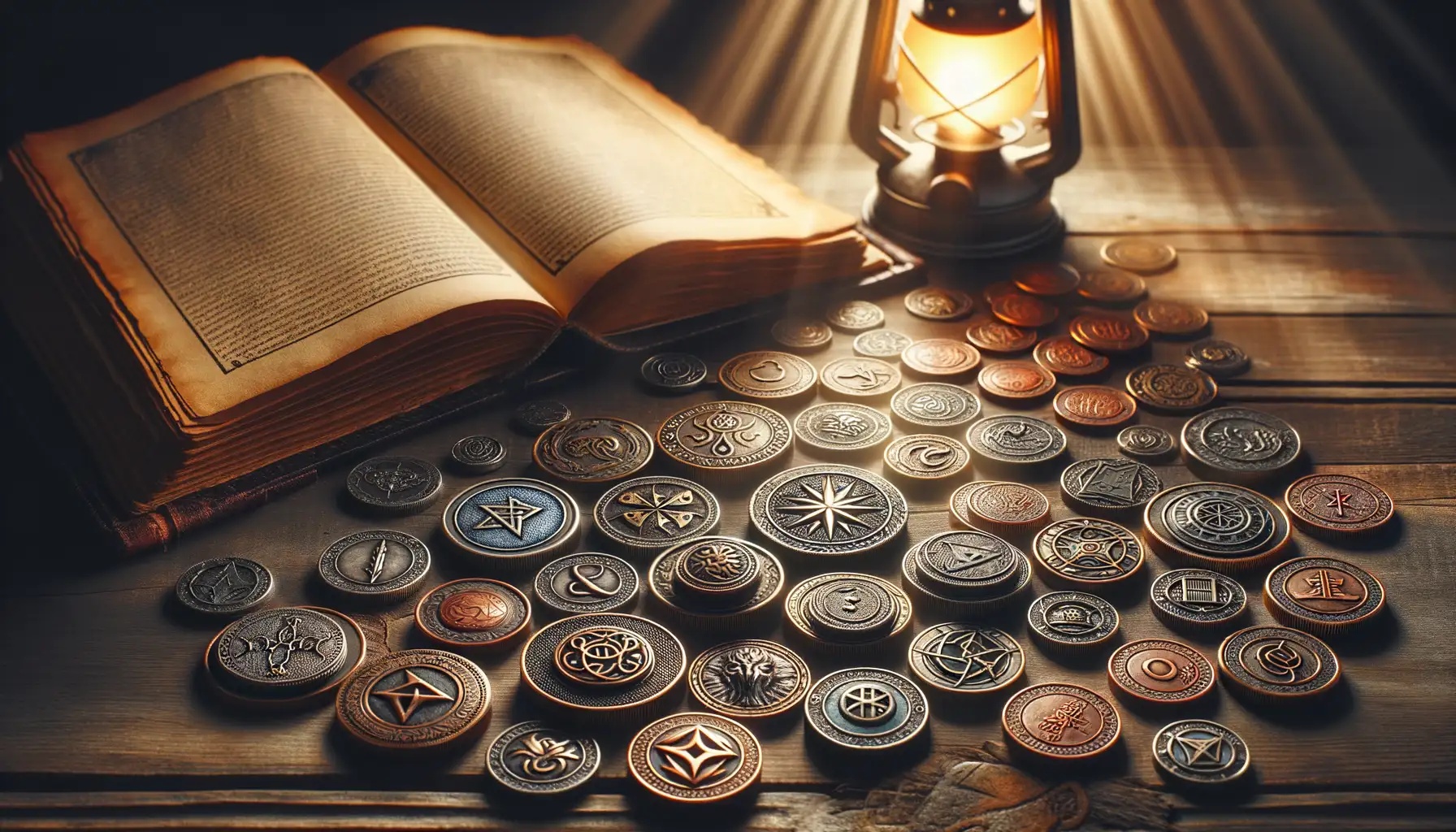
Why Touching Fantasy Coins Feels Like Magic
Role-playing games thrive on transporting players to another world, and nothing bridges our reality with a fantasy realm quite like the *tactile experience* of holding a fantasy coin. Picture this: your rogue character sneaks into a chest, prying it open to reveal gleaming gold pieces inside. Now imagine actually hearing those coins clink in your hand. That moment? Pure magic.
The weight of a coin, its intricate design, even the cold metal against your palm—these details turn an ordinary exchange into something unforgettable. Your party no longer “pretends” to argue over payment for the innkeeper; instead, you’re sliding real tokens across the table, grinning at the druid’s haggling skills.
- A stamped sigil of your kingdom adds historical depth.
- The wear on the edges tells stories of long-forgotten realms.
- Different metals? Perfect for symbolizing class-based wealth divides.
These coins are more than props—they’re storytellers in their own right. Each tiny detail whispers of worlds beyond imagination, turning mere gameplay into a cinematic experience. And honestly, isn’t that what we crave—something that feels larger than life yet sits warmly in the palm of your hand?
Designing Effective Fantasy Coin Systems for Games
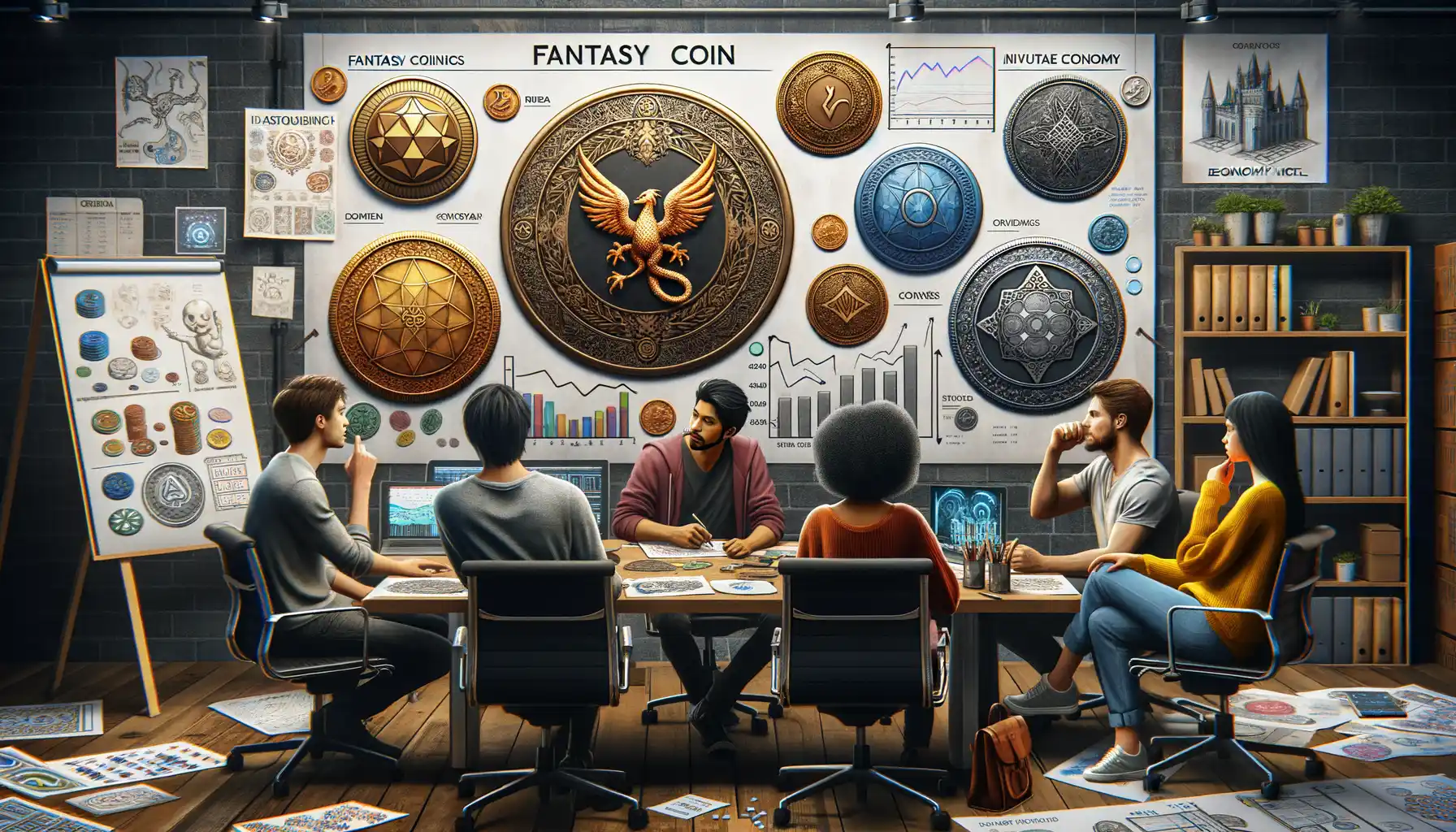
Crafting a Currency That Players Actually Care About
When it comes to designing an effective fantasy coin system, you’re not just tinkering with numbers—you’re crafting a culture. A good coin system doesn’t just sit in the background; it weaves directly into your players’ decisions, their ambitions, and even their rivalries. The aim? To make every gold piece or silver shard feel like it *matters*.
Start by thinking about your world’s unique flavor. Is it a crumbling empire where people hoard ancient, weathered coins from a forgotten dynasty? Or perhaps a bustling city-state where merchants haggle over intricately carved obsidian tokens? Your currency should reflect this identity. Even tiny details—like whether they’re stamped with the face of a long-dead tyrant or embedded with flecks of glowing magic—can elevate your designs from functional to unforgettable.
- What materials can only be found in certain regions? Think mithril, dragonbone, or enchanted glass.
- Could coins have *practical* uses beyond buying things? Maybe they double as spell components or keys to ancient locks.
And don’t forget denominations! Mixing low-tier copper cogs with elusive platinum ingots creates natural tension. Suddenly, finding a single platinum is a legendary story—not just loot.
Real-World Influences on In-Game Economies
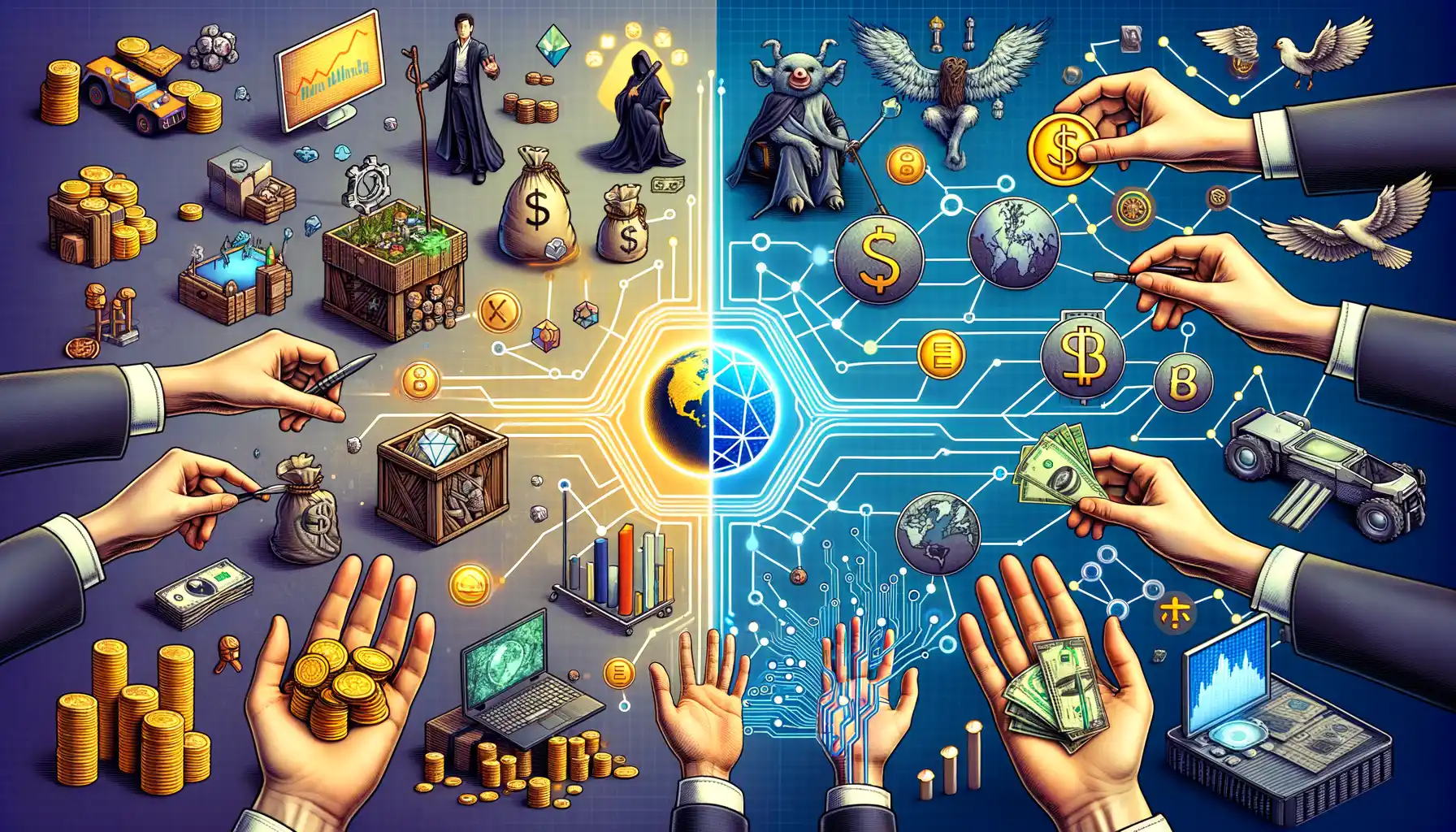
The Ripple Effect of Real-World Events
The world outside your favorite RPG doesn’t just stay “out there.” It sneaks in, tugging on the strings of virtual markets like an invisible puppet master. Picture this: a real-world economic downturn hits, and suddenly players are logging into their games less often. Fewer players selling means fewer coins circulating—and bam! Prices for in-game goods shoot up like fireworks on New Year’s Eve.
But it’s not just economics. Let’s talk about cultural trends. When a blockbuster movie drops, say *The Lord of the Dragons* (not a real title, but you get the idea), everyone suddenly wants a sword that looks just like the one the hero wields. The demand? Sky-high. The prices? Even higher. Love it or hate it, pop culture has a way of turning fantasy economies on their heads.
- Inflation and deflation: Real-world markets influence virtual ones, creating cycles of boom and bust.
- Player activity levels: A global holiday weekend? Expect packed auction houses and fluctuating prices!
And who could forget the rise of cryptocurrency? With its allure of digital gold, it’s no surprise some parallel its charm with the RPG coin systems we’ve been obsessing over for decades.
Future Trends in RPG Economies and Virtual Currencies
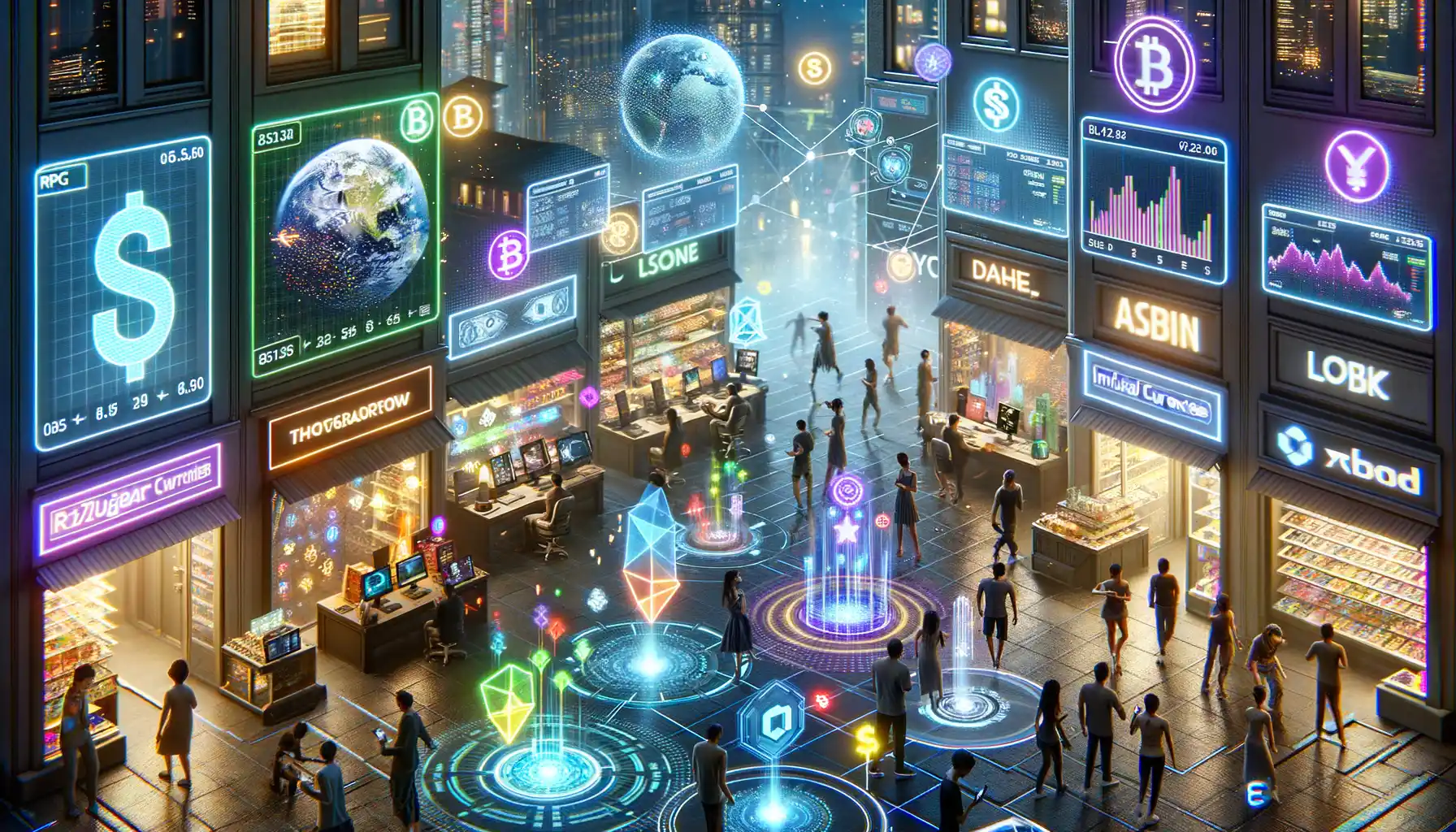
The Dawn of Blockchain in RPG Economies
Picture this: your favorite RPG world, bustling with markets, traders, and adventurers exchanging not just gold coins but also unique, traceable digital assets. The arrival of blockchain technology in gaming is turning that vision into reality. Imagine owning a legendary sword, minted as an NFT, which you can trade for some rare in-game currency—or even real-world cash!
Developers are already exploring how decentralized systems can create cross-game economies. What if your hard-earned treasure from one game could hold value in another? No more starting from scratch every time you dive into a new fantasy universe. These innovations are about more than just cool features—they’re about reshaping the way we think about ownership and value in virtual worlds.
- Tokenized currencies: Say goodbye to generic gold coins; blockchain enables customized, secure, and finite tokens for richer economies.
- Cross-platform compatibility: Your treasure hoard gains life beyond its original borders—spend it in any partnered world.
The Rise of AI-Driven Economies
Here’s a wild thought: what if NPC merchants stopped offering static prices? With AI algorithms, virtual economies could behave like real ones. Supply and demand might shift based on player actions, making every transaction feel alive. A wizard selling potions might raise prices during a plague questline or offer discounts in exchange for rare ingredients.
Even better, AI could tailor economic challenges to you personally. Struggling with finances in-game? Perhaps a guild banker offers you advice or loans tailored to your playstyle. Thriving? Watch the economy adjust to your prosperity, creating dynamic competition. It’s like a living, breathing system—a fantasy stock market where every player has a role.
These future trends aren’t coming—they’re already knocking on the gates of your favorite adventures.


